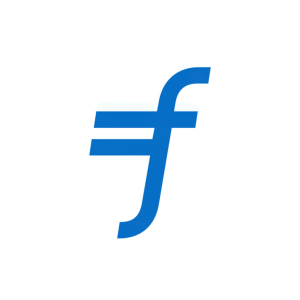New Flywire Research into Hospitality Workflows Provides a Blueprint for Hotel Revenue Growth
Rhea-AI Summary
Flywire (NASDAQ:FLYW) released a comprehensive research report highlighting how integrating contract and payment workflows can significantly boost hotel revenue and efficiency. The study, surveying over 300 General Managers and Event Directors, revealed that 94% of hotel leaders need streamlined payment processes, while 77% of sales teams lose revenue due to uncollected deposits.
Key findings show that 65% of hotels lose over $2,500 monthly to chargebacks, with 30% losing over $5,000. Additionally, 60% of staff spend more than six hours weekly chasing payments, and 73% report back-office staff turnover as a significant problem. The research suggests that automating payment processes could help hotels reduce chargebacks, improve efficiency, and enhance guest satisfaction.
Positive
- 97% of hotels believe digitizing payments would improve customer experience
- Potential revenue increase of 6% or higher through reduced staff turnover
- Automation opportunities to reduce manual payment processing and errors
- Multiple payment method acceptance capabilities can enhance flexibility
Negative
- 65% of hotels lose over $2,500 monthly to chargebacks
- 77% of property sales teams losing revenue from uncollected deposits
- 73% report problematic back-office staff turnover
- 60% of staff waste 6+ hours weekly chasing payments
News Market Reaction
On the day this news was published, FLYW declined 1.13%, reflecting a mild negative market reaction.
Data tracked by StockTitan Argus on the day of publication.
Data underscores how integrating the contract & payment workflows unlocks revenue, efficiency and guest satisfaction for hotel leaders
BOSTON, Sept. 09, 2025 (GLOBE NEWSWIRE) -- Improving the payment processes and integrating payment and contract workflows at hotel properties can directly boost customer experience and be an important factor in maximizing revenues, according to the latest research from Flywire Corporation (Nasdaq: FLYW), a global payments enablement and software company. Flywire’s new report details the extent to which automated payment processes can help hotel staff boost the guest experience, reduce turnover, and ultimately capture more revenue across their locations. And importantly, GMs signaled there’s also room to improve the steps that come before collecting payments, with
In its new report, The blueprint for stronger hotel performance: How leaders can maximize revenue with better workflows and simpler payments, Flywire reveals the results of an independent survey it commissioned of more than 300 General Managers or Event Directors at leading, multinational hospitality brands who have event spaces. The data uncovers how the contract and payment experience impacts guest experience, and why hotel GMs can look to efficient, automated processes to reduce manual errors and maximize revenue.
"Outdated payment systems are costing hotels hard-earned revenue,” said Colin Smyth, SVP and GM of Travel at Flywire. “Our research proves that modernizing payment and workflow processes isn't just about recovering lost revenue—it's about enhancing the guest experience and driving loyalty, which delivers a long-term competitive edge.”
Hotels struggle to reduce chargebacks, which remain a threat to revenue
Fraud continues to rise in hospitality and hotels are enticing targets. Chargebacks are a concern for hotel leaders.
Guests can issue a chargeback anytime and for any reason, regardless of the time and attention staff dedicate to them. And many properties have accepted chargebacks as a routine part of business and given up challenging them because of the time required.
Chargebacks are taking such a toll on staff that most hotel leaders believe they’re exacerbating the turnover issue;
With secure digital payments, hotels get built-in protections that help them reduce chargebacks and retain revenue.
Hotel leaders are eager for a more modern way to collect payments and integrate systems
If better system integrations were in place, staff members could spend less time manually handling payment information, also creating opportunities to decrease payment errors and security risks.
By simplifying and integrating contract and payment processes, hotel staff can significantly speed up turnaround times, reduce errors and reclaim valuable time.
Efficient payments drive positive guest experiences
Hotel GMs and Event Directors understand that complex internal processes impact how employees work with hotel guests. In fact, 8 out of 10 respondents worry they are losing customers and missing deposits as a result of inefficient payment processes.
Hotel GMs are eager to see improvements. Some of the improvements they are looking for include secure payments with encryption/ fraud checks (
With a more seamless payment experience, staff can ensure payments are completed and paid in a timely manner – while building customer loyalty with every transaction.
Automating manual payment processes can help GMs recuperate revenue
With a higher risk of delays, customer dissatisfaction, and missed steps in the payment process, properties are experiencing revenue loss for bookings.
In a typical month, more than half of the respondents say they are losing 3
In contrast, automated processes help hotel staff capture more revenue, eliminate missed payments and ensure every payment comes in correctly and on time.
Greater efficiency can reduce staff turnover and free up more time for high-value work
Most hotel leaders agree that if they can reduce turnover, revenue would increase. In fact, half say that the impact would be as much as
Resources
- To experience the full report, please visit: https://flywire.foleon.com/report/flywire-hotel-payments-report/
- To learn more about Flywire’s solutions for hotels, please visit https://www.flywire.com/industries/travel/hotels
About Flywire
Flywire is a global payments enablement and software company. We combine our proprietary global payments network, next-gen payments platform and vertical-specific software to deliver the most important and complex payments for our clients and their customers.
Flywire leverages its vertical-specific software and payments technology to deeply embed within the existing A/R workflows for its clients across the education, healthcare and travel vertical markets, as well as in key B2B industries. Flywire also integrates with leading ERP systems, such as NetSuite, so organizations can optimize the payment experience for their customers while eliminating operational challenges.
Flywire supports more than 4,800* clients with diverse payment methods in more than 140 currencies across more than 240 countries and territories around the world. The company is headquartered in Boston, MA, USA with global offices. For more information, visit www.flywire.com. Follow Flywire on X , LinkedIn and Facebook.
*Not including Flywire’s acquisitions of Invoiced and Sertifi
Forward-Looking Statements
This release contains forward-looking statements within the meaning of the Private Securities Litigation Reform Act of 1995, including, but not limited to, statements regarding Flywire’s expectations of its travel business. Flywire intends such forward-looking statements to be covered by the safe harbor provisions for forward-looking statements contained in Section 21E of the Securities Exchange Act of 1934 and the Private Securities Litigation Reform Act of 1995. In some cases, you can identify forward-looking statements by terms such as, but not limited to, “believe,” “may,” “will,” “potentially,” “estimate,” “continue,” “anticipate,” “intend,” “could,” “would,” “project,” “target,” “plan,” “expect,” or the negative of these terms, and similar expressions intended to identify forward-looking statements. Such forward-looking statements are based upon current expectations that involve risks, changes in circumstances, assumptions, and uncertainties. Important factors that could cause actual results to differ materially from those reflected in Flywire's forward-looking statements include, among others, the factors that are described in the “Risk Factors” and “Management's Discussion and Analysis of Financial Condition and Results of Operations” sections of Flywire's Annual Report on Form 10-K for the year ended December 31, 2024, and Quarterly Report on Form 10-Q for the quarter ended June 30, 2025, which are on file with the Securities and Exchange Commission (SEC) and available on the SEC's website at https://www.sec.gov/. The information in this release is provided only as of the date of this release, and Flywire undertakes no obligation to update any forward-looking statements contained in this release on account of new information, future events, or otherwise, except as required by law.
Contacts
Media:
Sarah King
Media@Flywire.com
Investor Relations:
Masha Kahn
IR@Flywire.com








